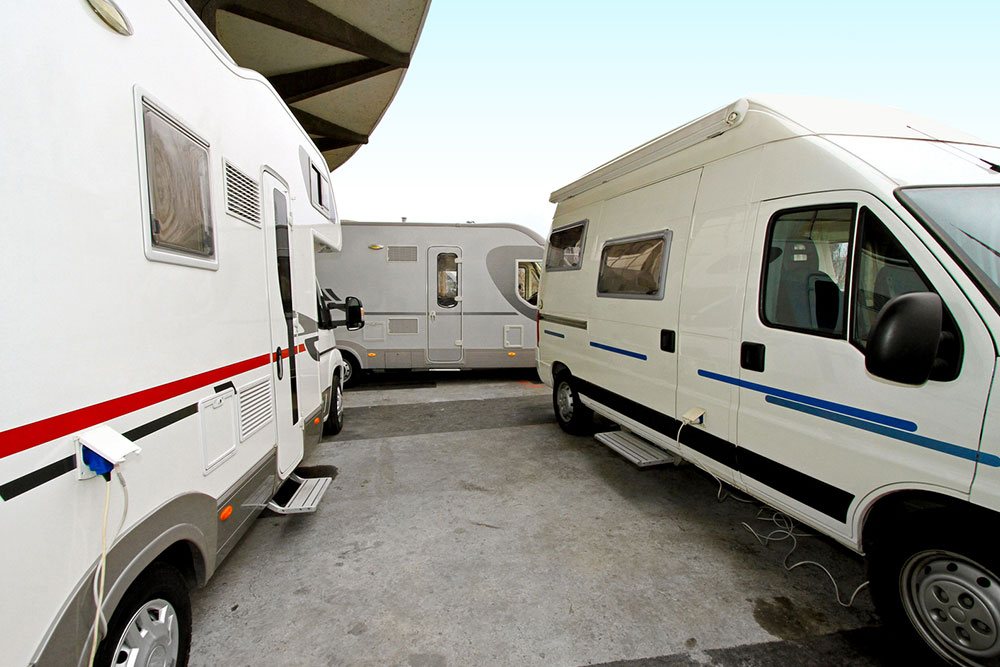5 mistakes first-time RV buyers should avoid

Owning a recreational vehicle or RV can be quite exciting. It allows one to travel cross-country and enjoy long road trips with friends, family, or even alone. But purchasing an RV can be confusing and overwhelming, especially for first-time buyers. After all, an RV is a pretty big investment. With so many options and features available, it can be easy to make a mistake, which can quickly turn into buyer’s remorse.
Buying the RV on an impulse
New buyers often get excited looking at RVs and decide to get the first one they see. But this is not a wise thing to do. Since an RV is a big-ticket purchase, one must avoid diving into it immediately and think before signing on the dotted line. Individuals should take a lot of time to research and see whether the model they are considering will meet their needs. Buying an RV is like buying a house or a family car, so individuals should compare the available options before purchasing. Haste can cause one to pick the wrong option, leading to a waste of money.
Not setting a budget
Not setting a budget is the easiest way to end up with buyer’s remorse. The market has many RV options with different sizes, classes, and features. Each model also has a different price point. A luxury RV with high-end features will obviously cost more than a mid-range one with standard features. So, without a budget, one will not know where to set the limit. This error can cause one to overspend or buy something they cannot afford. On the other hand, a fixed budget can help buyers sort through the options quickly and choose something that meets their requirements without overpaying.
Staying away from pre-owned RVs
It is understandable to want to get a brand-new RV model as a first-time buyer. After all, a shiny, state-of-the-art, top-of-the-line RV can be a fun purchase. But it might not be so much fun for one’s savings and bank account. Typically, a brand-new model will lead to overspending and going over budget. Besides, the best RV deals are usually on pre-owned vehicles. One can easily find a used RV with all the features they want at a fraction of the price of a new one. Since first-time buyers are not yet used to owning an RV, a used one can relieve a lot of burden. Used vehicles have already been driven, and the issues and maintenance requirements are evident, so one knows what they are getting into.
Skipping research on different RV types
With so many options available, it would be a serious mistake not to do enough research on various types of RVs. Knowing the differences between motorhomes, campers, travel trailers, and so on will make the decision process easy. For some, a camper might be more suitable, while for others, a motorhome would be an excellent choice. One can find the right fit only when one knows the different types of RVs available in the market.
Pop-up campers
These are also called fold-down or tent trailers. Smaller in size, they are usually perfect for young families who are first-time buyers.
Truck campers
Such RVs are versatile because they can be easily installed over a truck bed. Truck campers typically have high ceilings and slide-out rooms that make the interior expansive.
Small travel trailers
Small travel trailers are one of the most common types of RVs. They are generally used for camping because they are designed to be towed by a frame hitch or a bumper.
Fifth-wheel RV
These are some of the largest towable RVs, paired with large pick-up trucks that typically have a fifth-wheel hitch.
Motorhomes
A motorhome is like a trailer with a kitchenette, beds, lots of storage, bathroom facilities, and a driving cab at the front for the driver and passenger seat. They are usually available as Class A motorhomes, Class B motorhomes, and Class C motorhomes. Each class differs in terms of price, size, and number of amenities.
Forgetting to test drive the RV
In the middle of the excitement of buying an RV for the first time, it is easy to forget to test drive. But doing so means letting go of an opportunity to experience the vehicle and know if it is the right purchase. Most first-time buyers are unfamiliar with various aspects of operating an RV. For example, they may not know about RV height and clearance or how to back a long vehicle into a parking space. Similarly, they may not have experience with the turning radius of an RV, its weight distribution, and how these factors directly affect the right and left turns. These things will become clear during the test drive, and one will know whether they are comfortable handling that particular RV. So, first-time buyers should always remember to take a test drive. One can contact the dealership and book a slot to ensure everything flows smoothly.
Researching and learning about common RV buying mistakes can help one be more confident. Although research may take some time and effort, it ensures one makes the right choice and avoids disappointment.









